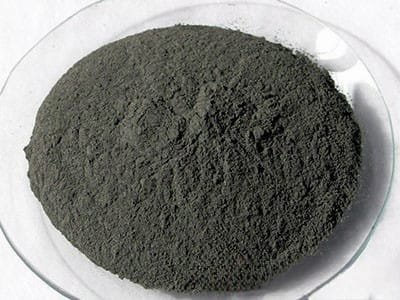Discover Advanced Engineering with TFM’s Spherical Niobium Powder
Experience the forefront of material innovation with TFM’s Spherical Niobium Powder, engineered for superior performance in advanced manufacturing methods like 3D printing. Niobium, recognized for its soft, lustrous appearance, gains a bluish tint upon air exposure due to its reactive nature and excellent chemical stability. With properties similar to tantalum, niobium stands out for its remarkable resistance to oxidation and chemical corrosion, making it indispensable across high-demand industries.
Chemical Composition and Purity
TFM’s Spherical Niobium Powder boasts a purity of ≥ 99.9%, making it ideal for high-precision applications. Here’s the breakdown of its chemical composition:
- Niobium (Nb): ≥ 99.9%
- Aluminum (Al): 0.002%
- Iron (Fe): 0.001%
- Calcium (Ca): 0.001%
- Magnesium (Mg): 0.001%
- Copper (Cu): 0.001%
- Manganese (Mn): 0.001%
- Sodium (Na): 0.003%
- Cobalt (Co): 0.001%
- Nickel (Ni): 0.001%
- Silicon (Si): 0.001%
- Lead (Pb): 0.001%
- Potassium (K): 0.002%
- Nitrogen (N): 0.001%
- Carbon (C): 0.03%
- Sulfur (S): 0.002%
- Total Oxygen (T.O): 0.02%
Versatile Applications Across Key Industries
Our spherical niobium powder is highly sought after in numerous sectors, including:
- Aerospace
- Medical Devices
- Electronics
- 3D Printing
- Optics
- Energy
Aerospace Applications
Niobium plays a critical role in aerospace manufacturing thanks to its resistance to extreme temperatures and favorable strength-to-weight ratio. It is especially effective for:
- Engine Components: Withstanding high temperatures without degradation.
- Structural Parts: Lightweight and durable, niobium contributes to better fuel efficiency and overall performance in aerospace structures.
Precision Manufacturing Process
TFM employs cutting-edge technology to produce niobium powder with superior purity and optimized particle morphology. This method improves the powder’s flow characteristics and packing density, which are essential for consistent results in 3D printing and sintering processes.
Secure Packaging and Rigorous Quality Control
Each batch of our Spherical Niobium Powder is sealed in moisture-resistant, vacuum-packed containers to prevent contamination or oxidation during storage and transport. The packaging is clearly labeled with detailed product specifications and handling guidelines to ensure our customers receive only the highest-quality materials.
Custom Solutions Tailored to Your Needs
At TFM, we recognize the uniqueness of every project. That’s why we offer custom sizing and specifications to fit your exact requirements. Our expert team is on hand to provide technical support and guidance, ensuring your projects achieve the best possible results with our niobium powder.
Frequently Asked Questions
Q1: What is the purity level of TFM’s Spherical Niobium Powder?
A1: Our niobium powder has a purity of ≥ 99.9%, delivering optimal performance across all applications.
Q2: How does particle size affect 3D printing performance?
A2: Consistent particle size enhances both flowability and packing density, ensuring precision and quality in additive manufacturing.
Q3: Can TFM provide custom particle sizes?
A3: Yes, we can offer particle sizes tailored to meet specific industrial or research requirements.
Q4: What are the recommended storage conditions for niobium powder?
A4: Store the powder in a cool, dry place, away from direct sunlight, using the vacuum-sealed packaging provided.
Q5: Is niobium powder safe to handle?
A5: Niobium powder is generally safe, but it’s recommended to use gloves, protective eyewear, and respiratory protection during handling. Always follow standard safety protocols for working with metallic powders.
Q6: Which industries benefit the most from spherical niobium powder?
A6: Key industries include aerospace, medical devices, electronics, additive manufacturing, and energy, all of which capitalize on niobium’s unique properties.
Q7: How does TFM ensure the quality of its niobium powder?
A7: We implement strict testing and quality control measures at every stage of production to guarantee the highest product standards.
Contact Us for More Information
To learn more about our Spherical Niobium Powder, request a quote, or discuss your project needs, reach out to us today. Our knowledgeable team is ready to assist with high-quality materials and expert support to help you meet your goals.





Reviews
There are no reviews yet.